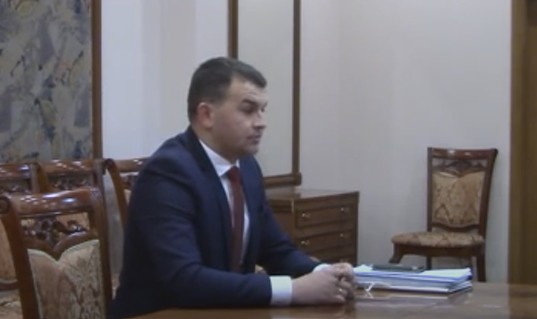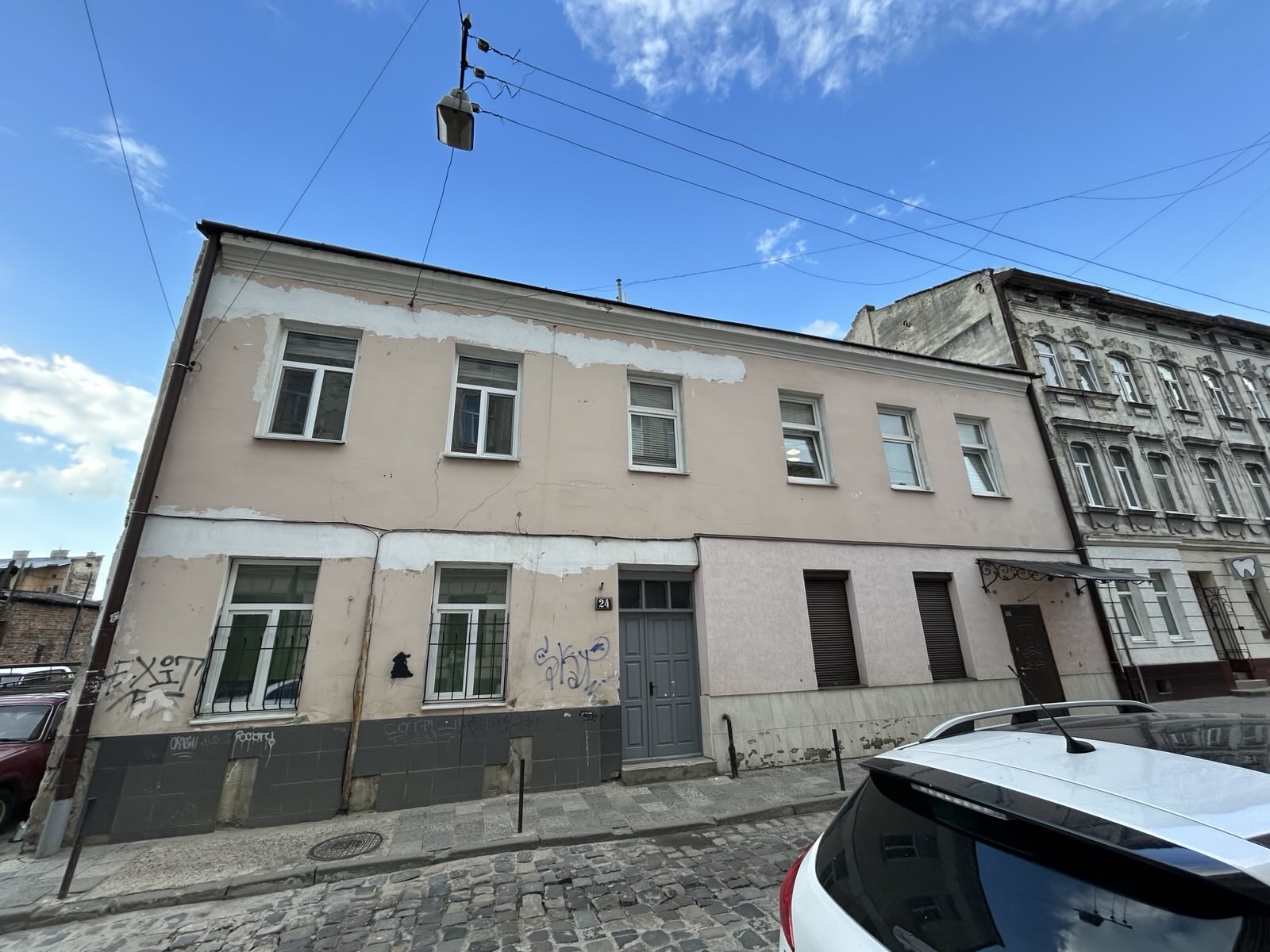Hundreds of thousands of people from different Ukrainian cities are still on waiting lists for social housing; some have been on it since the 60s of the last century. Even though the very notion of “a waiting list for apartments” was inherited from the USSR, these lists are not getting any shorter, as one would expect; instead, they are growing ever longer.
About 70 thousand people are applying for free housing only in Kyiv; as for Lviv, in May 2025, the list includes almost 29 thousand people.
Both in Soviet times and now, the system of waiting lists for housing has been a field for corruption because the willing people are many, yet free housing is extremely scarce. The scheme, described in this material, looks like the very system envisaged its availability.
This investigation has become possible thanks to the participants of the NGL.media community, who have access to special content and possibilities.
The people on the waiting list of the Lviv city council have been registered in it for decades, and the list is hardly moving In five recent years, only two people from the total waiting list for apartments have received housing in Lviv. And then, all of a sudden, some people are given apartments free of charge, as if temporarily, and their place on the main waiting list is kept. Then, these people privatize these “temporary” apartments and re-register them with the relatives of the official who has made up this scheme.
A little scheme for a big purpose
NGL.media came to know about this case at the time when the criminal proceeding was registered, and the witnesses were interrogated. At a glance, this is a local story, but it is a good illustration of the scale of the problem in the entire country. Firstly, how easy it is for skilled fraudsters to remain under the radar for years. And secondly, how much the system of social housing in Ukraine requires changes.
The main (but not the only) main characters of this story are two Lviv residents, 38-year-old Vasyl Vynnytskyi and 35-year-old Oleksandr Nakonechnyi. They have both worked as lawyers in the local government system and know the ways to bypass the system well.
For instance, Vasyl Vynnytskyi managed to work as a lawyer in three different district administrations of Lviv. “I have worked in the municipal housing organization in Lviv for five years, I already know all the little details. Then, I went to the district administration. While there, I was in all the commissions: administrative, custodial ones, I practically know the entire activity of the local government authorities,” Vasyl Vynnytskyi assured during the interview for the position of the head of the Western Interregional Department of the Ministry of Justice in 2019 As a result, another candidate was selected for the position of the head of the Western Interregional Department of the Ministry of Justice.
At that moment, Vynnytskyi was working as a lawyer of the Lychakivskyi district administration of Lviv, and, as NGL.media found out, he had already succeeded in registering several social apartments with his relatives.
How did it happen?
In October 2015, Volodymyr Shurhot, a pensioner from Lviv, addressed the city council with a request to give his family a one-room apartment in the Pidzamche district. There were all the grounds for his request Volodymyr Shurhot has been on the waiting list for apartments since 1984. In 2015, he was included in the separate list of those who could get an apartment out of turn because his son took part in the ATO, but it is noteworthy that in his application, he indicated the accurate address of the desired apartment an apartment with the total area of 33.1 sq.m. situated at 24, Zhovkivska Str.. This is a relevant point since the information about vacant communal housing, including apartments, is not available in open access.
The apartment that the pensioner wanted to receive had been declared unfit for living. Yet, in his application, he assured that he would repair it at his own expense.
The application of Volodymyr Shurhot was approved by the housing commission, and a few months later, the executive committee of the Lviv city council made a decision about giving him the apartment “with the purpose of temporary improvement of housing conditions, without the removal from the waiting list for apartments”. This mechanism gives a possibility to receive housing that does not correspond to the current norms (in terms of the area, technical condition, etc.) and still remains on the general list to obtain a full-value apartment in the future. The word “temporary” is relative in this mechanism since the people with benefits have a right to privatize this housing.
In October 2016, Volodymyr Shurhot privatized the apartment that he had received, and two months later, he officially presented it to 60-year-old Maria Vynnytska, the mother of Vasyl Vynnytskyi, the then-lawyer of the Frankivska district administration in Lviv. During the process of privatization and gifting, Shurhot’s interests were represented by Oleksandr Nakonechnyi, another lawyer at the Frankivska district administration, using the power of attorney.
Volodymyr Shurhot refused to talk to NGL.media about the reasons for presenting his housing to Maria Vynnytska. “I have given that apartment away, and nothing interests me anymore,” he said. He is a 72-year-old pensioner who still works at the LCE “Road repair enterprise of Shevchenkivskyi district”. He remains on the general waiting list for apartments under number 5928.
In 2022, Vasyl Vynnytskyi sold the apartment in Pidzamche, presented to his mother. At that moment, he was working as a lawyer for the Shevchenkivskyi district administration in Lviv.
Family dramas
The next geographical point in this story is a house at 24 Balabana Street in Lviv. In territorial terms, this is the beginning of Pidzamche district, less than a ten-minute walk to the Opera. This two-storey house used to be non-residential The building was built at the end of the ХІХ century, in the 1930s, there were storages of scrap metal and used clothes, then the office of the “Halrembud” building company was situated on the first floor, later several apartments were arranged on the second floor, and the rest of the premises was used for offices. However, in 2014–2017, four more non-residential premises were made into apartments, which now belong to the mother of Vasyl Vynnytskyi and his two former wives. This story had its own troubles because the reconstruction of a non-residential building into an apartment requires a specific resolution from the city council. And a similar scheme with people on the waiting list was applied again.
The most illustrative story is that of Oksana Kuz, a Lviv resident, who addressed the city council in 2014 to obtain a permit for the reconstruction of non-residential premises on the first floor of this house. She received this permit in 2015, and one year later, she got the allocation order for the “temporary” apartment, which she privatized several months later.
Eight months after privatization, Oksana Kuz presented her apartment to Yulia Smolynets, a lawyer of the Davydivska village council. At that moment, Yulia Smolynets seemed to be in rather close relations with Vasyl Vynnytskyi, at least so close as to lend him UAH 200 thousand two weeks after receiving the apartment. Later, she married Vynnytskyi and became his second wife.
Noteworthy is the fact that Oksana Kuz’s authorised person was the abovementioned Oleksandr Nakonechnyi, the lawyer of the Frankivska district administration. The investigation found out that prior to receiving the apartment allocation order, Oksana Kuz gave him a power of attorney, which, among other things, entitled Nakonechnyi to sell or present this apartment to… Maria Vynnytska, the mother of Vasyl Vynnytskyi Information from the copy of the act of the commission of the Lviv city council, established by order of the director of the economic development department dated 08.03.2024 “On establishing a commission for internal investigation”, which NGL.media received in response to the inquiry to the Lviv city council.
Seems like Oksana Kuz was just a straw party who didn’t quite understand the results of her actions. After Oksana Kuz presented her apartment, in March 2018, the Frankivska district administration of Lviv appointed Yulia Smolynets to be the custodian for Oksana Kuz.
Numerous attempts by NGL.media to contact Oksana Kuz have failed, so we were unable to hear her position. Yet, the following events suggest that Oksana Kuz actually couldn’t completely understand what was happening to her apartment.
“When concluding the gifting agreement, a mistake was made regarding the nature of the transaction, namely, the plaintiff [Oksana Kuz] meant to conclude the life care contract,” stated the decision of the Frankivskyi district court of Lviv, which sustained the claim of Oksana Kuz and declared the agreement of presenting the apartment to Yulia Smolynets null and void.
However, Yulia Smolynets appealed the termination of the agreement and, in 2022, returned the apartment for herself, and for some reason, this time Oksana Kuz was not against this decision.
Yulia Smolynets refused to talk to NGL.media about her role in this story.
In 2021, Vasyl Vynnytskyi officially divorced Smolynets and came back to his first wife — Nadia Pelenska, also a lawyer. And in 2023, Pelenska bought a two-room apartment with a total area of 44.1 sq.m. for UAH 2.3 million in the same house on Balabana Street. In 2024, Vynnytskyi and Pelenska got divorced again.
Two more apartments in the same house on Balabana Street belong to Maria Vynnytska, the mother of Vasyl Vynnytskyi. Both apartments were re-planned from the non-residential premises, allocated to people from the waiting list, and then re-sold.
“A family seldom gets together”
In ten recent years, Vasyl Vynnytskyi managed to work as a lawyer in three different district administrations of Lviv Vynnytskyi worked in Frankivska, Lychakivska, and Shevchenkivska district administrations. While he was working in the Frankivska district administration (till 2019), his close relative, Orest Tymchyshyn, was first the deputy head and then the head of this administration. The stories with apartments took place in this very period.
When NGL.media asked Tymchyshyn to comment on the fraud with communal property, which was related to his family, he just said that he hoped the police would cross all the T’s and dot all the I’s. He denied knowing anything about this fraud.
“You know how it is… The family gets together seldom… And mostly, there are so many people that you can’t even talk about something much. But, frankly speaking, there was nothing [in Vynnytskyi’s behaviour] as such: nothing too good, nothing too bad. Just a guy like a guy,” Orest Tymchyshyn said.
After working as the head of the Frankivska and then Lychakivska district administrations, Orest Tymchyshyn headed the department of the housing and communal services of the Lviv city council, and in the beginning of 2024, he was appointed the acting deputy mayor of Lviv in the issues of the housing and communal services. However, in April 2025, Orest Tymchyshyn was transferred to the executive committee of the city council to deal with the projects with biogas and Lviv municipal enterprises. The city council refused to comment on the reasons for his downgrading.
Oleksandr Nakonechnyi, who took an active part in this story, refused to give NGL.media his comments and deleted his social media accounts. This spring, he left the district administration and started working as an inspector of the State Tax Service.
What do they say in the city council?
The first suspicions regarding the dishonesty of Vasyl Vynnytskyi appeared in the Lviv city council only last spring. The scheduled inspection revealed that his expenses exceeded his official income.
“Taking these circumstances into consideration, the city mayor ordered Inna Svystun, the head of the economic development department, to create an official commission to conduct an investigation regarding Vynnytskyi’s actions,” Yevhen Boiko, the chief clerk of the executive committee of the Lviv city council, said.
In his words, the internal investigation, which lasted almost four months, found that Vasyl Vynnytskyi might indeed have abused his position to improve the living conditions for his relatives. As a result, Vynnytskyi was fired from the position of the head of the legal department of the Shevchenkivska district administration, and all the materials of the internal investigation were submitted to the public prosecutor’s office.
In July 2024, the Lviv police initiated criminal proceedings in this case, according to part 1 of Art. 364 (abuse of power or position). There is an ongoing pre-trial investigation, including the collection of evidence, interrogation of witnesses, etc. Meanwhile, Vasyl Vynnytskyi has made an unsuccessful attempt to become the judge of the local court and simultaneously sues the city council to get his position back.
Vasyl Vynnytskyi didn’t respond to numerous requests from NGL.media for comments.
Why have such schemes become possible?
The main legal documents, regulating the obtaining of social housing, are the Residential Code, adopted as far as in 1983, and the Law “On Residential Fund for Social Purposes” of 2006. The methods of social housing provision, envisaged by these normative documents, are inefficient and create wide playgrounds for corruption and fraud.
“The privatization of housing should be completed. Housing for private ownership can be bought in the market, and the state can help some categories of citizens with beneficial crediting or payment of the first contribution. A system of social housing should be developed instead: the housing of different forms of ownership (municipal, first and foremost), which should be leased on reasonable terms. And people should be placed in such housing based on the waiting list, all the other lists should be abolished,” Tetiana Boiko, the coordinator of the housing, communal, and energy programmes of the Opora public network, believes. “Who can apply for such housing? All the families, whose expenses for rent exceed 20% of their income. First of all, these are people with disabilities, families with disabled children, families with many children, veterans, and older people. But not only that. These may also be specialists needed in the community.”
At the beginning of 2025, the government approved the draft law “On Main Provisions for Housing Policy” which aims to solve the main problems with social housing provision, including stopping the possibility of privatization, which makes fraud, like the one with apartments in Lviv, possible. This draft law has not been voted for in the parliament.
While the discussion about the system of social housing 2.0 in Ukraine is still ongoing, one can at least try to minimize the corruption component in this sphere at the local level. The story with Vasyl Vynnytskyi, his relatives and friends, casts a shadow not only on the close circle of those involved but also on the entire city council – if not in the legal aspect, then at least reputationally. The Lviv city council promises to be more vigilant about who and how is allocated social housing so as not to get into any mess again.
“We analyzed our “Provisions on the public commission of housing matters”. In the report, the experts indicated the availability of corruption risks in the current provisions. So, a new project of this document is being prepared and coordinated with current normative and legal acts,” Yevhen Boiko, the chief clerk of the executive committee of the Lviv city council, assured NGL.media. “In addition, we conducted some work with the members of the housing commission and improved their awareness about the conflict of interests. Also, internal control is used in this sphere now: the decisions of the commission regarding the housing and the documents, which serve as grounds for their approval, are checked by the sector for fair practices.”
The author Kateryna Rodak, editor Oleh Onysko, translation Nelya Plakhota, cover Marta Kharkovets





